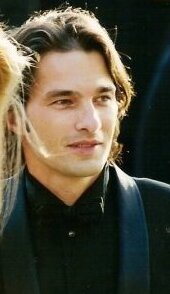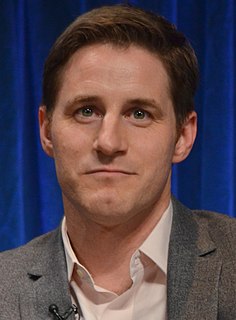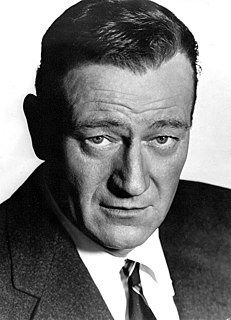A Quote by Raoul Peck
From a young age, [James Baldwin] was watching all those different films. He's watching John Wayne killing off the Indians. He came to the point that the Indians were him. You had to educate yourself because the movies were not educating you. The movies were giving you a reflection of you that was not the truth. That's the trick. The movie was also giving a reflection of what the country is. Basically, a country that wanted itself to be innocent. That's the ambivalence of Hollywood.
Related Quotes
When I was a kid, I was watching the movies my parents wanted to watch. I came from a working class family, not specifically educated, so we were watching popular movies. My dad liked cowboy movies, so we were watching cowboy movies. Some of them were amazing. It’s a genre of movie I like very much.
There may be something in the fact that when I was a little kid I'd been told growing up that we had some degree of native American blood in us, I always found that a point of pride. So, when it came to cowboys and Indians I most certainly did not want to be John Wayne. I wanted to be one of the Indians.
Before AIM, Indians were dispirited, defeated, and culturally dissolving. People were ashamed to be Indian. You didn't see the young people wearing braids or chokers or ribbon shirts in those days. Hell, I didn't wear 'em. People didn't Sun Dance, they didn't Sweat, they were losing their languages. Then there was that spark at Alcatraz, and we took off. Man, we took a ride across this country. We put Indians and Indian rights smack dab in the middle of the public consciousness for the first time since the so-called Indian wars.
I believe in white supremacy, until the blacks are educated to a point of responsibility. I don't believe giving authority and positions of leadership and judgment to irresponsible people ... I don't feel we did wrong in taking this great country away from [the Native Americans] ... Our so-called stealing of this country from them was just a matter of survival. There were great numbers of people who needed new land, and the Indians were selfishly trying to keep it for themselves.
Did you know that Nuremberg courtroom was designed so that the Allies could project movies during the trial? And, also so that they could film the trial? The first movies that were shown were prepared by John Ford - a compilation of material from the liberation of Bergen-Belsen and Dachau. But here comes an interesting part. Did you know they lit (using fluorescent tubes) the defendants so they could be filmed watching the films that were shown during the trial?
Pretty early on in making the first movie I realized that this is what I wanted to do. I felt like by that time I just found my niche, like this is what I was supposed to be doing. So I completely submerged myself into the world of watching movies, making my own movies, buying video cameras and lights. When I wasn't making a movie, I was making my own movies. When I wasn't making movies, I was watching movies. I was going back and studying film and looking back at guys that were perceived as great guys that I can identify with. It just became my life.
We were film geeks. We devoured everything: really obscure art films, foreign films. We were the kind of guys that lived at the Cinematheque. But at the end of the day, your favorite movies are like everybody else's favorite movies. Because those are the movies that become a touch point where you can connect to other people.
When I was growing up, all the films about teenagers were played by Tony Curtis or John Cassavetes when they were 27, 28 years old. We would see these teenage movies in the theaters and I would say, "They don't look like they're my age at all." So I wanted to make a movie that was real and I wanted to make a movie that wasn't about me.
Richard Donner made great movies. Seminal movies. The Academy, though, and we have to be careful here, should recognize popular films. Popular films are what make it all work. There was a time when popular movies were commercial movies, and they were good movies, and they had to be good movies. There was no segregation between good independent films and popular movies.
We need to give out portrayal of ourselves. Every non-Indian writer writes about 1860 to 1890 pretty much, and there is no non-Indian writer that can write movies about contemporary Indians. Only Indians can. Indians are usually romanticized. Non-Indians are totally irrepsonsible with the appropriation of Indians, because any time tou have an Indian in a movie, it's political. They're not used as people, they're used as points.





































